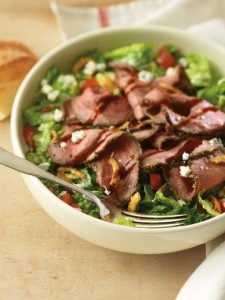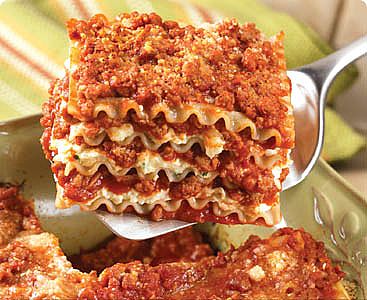The Great Calorie CON!
I remember going to my first nutrition class at Penn State.
I was eager to jump right in since that was what I was there for, but had to wait until some of those darn pre req classes were out of the way.
I walked in day 1. Liz Evans was our professor. And she certainly didn’t look like the people I saw in the pages of the magazines I was getting all my information from up until this point. Hey, you have to start somewhere.
Anyhow, after going over the syllabus, "one of the most important lessons in nutrition — in the entire course," Liz said, "is that all calories are equal. Nutrition, health and weight loss are really simple" she continued "Calories in equal calories out, your weight is stable. Calories out are more than calories in, you lose. If calories in are more than calories out, you gain weight."
Like all the other students, I was writing as quickly as I could.
And this message continued. Through my masters and into my PhD, where my research focus was on teaching people how to lose weight permanently.
But it was then that I started to question things a bit more.
REALLY? Are all calories the same?
It didn’t make sense to me. You see from a law of thermodynamics, it does make sense. If you walk for 1 mile you burn 100 calories. If you eat 100 calories worth of food, you’ve essentially created a "wash." Nothing gained. Nothing lost if we’re solely looking at this with regards to body weight.
But what if you compare extremes?
1 pound of sugar = 1,540 calories
~26 apples = 1,540 calories
Same calories. But do you think the quality of 1 lb of sugar and 26 apples is the same? Of course not…aside from the laundry list of nutrition problems eating a days worth of calories from just sugar would cause (nutrient deficiencies, scurvy, tooth decay, etc), how do you think the person eating the 1 pound of sugar would look, feel and perform after she did so? Of course 26 apples isn’t the ideal "diet" either, but you get the point.
So as we started to look into this more on our own, with our own clients, and with our own writing & research … we changed our tune and go against the grain of mainstream nutrition to instead give this message:
QUALITY of the diet is more important than QUANTITY of the diet.
Of COURSE calories still do matter.
But quality is crucial to permanent success. And it made us even happier when we read a recent study by researchers at Harvard University confirming our point of how the quality of the diet — above and beyond just quantity — can help with fat loss.
The study certainly wasn’t the final word — and definitely had limitations — it wasn’t a "cause and effect" study, but rather a correlation study that asked over 120,000 healthy, well educated men and women about their dietary habits every 2 years for a total of between 12 and 20 years.
They then teased out some of the food items that were associated with weight loss or weight gain among the subjects.
First, as a whole, they found that the average participant gained about 0.5 kg (1.1 lb) per year. Who cares, right? It’s JUST 1 lb. The problem … year after year after year … that 1 lb adds up and people never lose it and long term it’s more and more dangerous.
The question, then, is what foods did they find contributed to the weight loss vs. those that contributed to weight gain?
Weight Loss:
- Veggies
- Fruits
- Nuts
- Whole grain foods
Weight Gain:
- Sugar sweetened drinks
- Processed meats
- Potatoes
Interesting, huh?
Again, we’re certainly not saying there aren’t limitations to this study or this type of correlation study, but there were some interesting findings to consider. The take home points from the authors were to not focus so heavily on calories and rather look at the quality — limit processed or refined carbohydrates and focus instead on veggies, fruits, and healthier food options … even if they are higher in calories (like nuts). Basically a lot of this boils down to how these foods affect the hormones in our body – namely, insulin, a powerful storage hormone.
Again, it’s not just how much you eat, but WHAT you eat.
Just as an aside, we also don’t think potatoes are a "devil" food — we do think the ways people eat them (such as French fries) are. Again, take this data with a grain of salt.
At the end of the day, though, we want you to focus on overall diet QUALITY … our message remains the same. Lots of veggies and fruits, nuts, healthy fats, lean protein and some whole grains.
Pretty basic. But very effective.
-
Abs Diet: Side Abs Exercises
Saxon Side Bend (works the external and internal obliques, which exten
-
71 Ways to Lose Fat
Have a clear goal that anyone in the world can measure and understan
-
Try Jason Stathams Weight Loss Workout at
“He’s a bit lardy, isn’t he?” Jason Statham sa
-
Healthy E ing and Exercise
Heres a great meal-planning system, courtesy of Mark Verstegen, a trai
-
How Big Dreams Sabotage Your Weight Loss
The option to “super-size” isn’t just a fast-food abomination. America
-
Stop Smoking Without Weight Gain
There are a lot of good reasons to quit smoking—your health, your fami
- DON'T MISS
- Weight Loss: Abs Diet Circuit Sequel Workout
- Diet Strategies: Stop Food Cravings
- I Hate Fat People:
- Coconut Oil-A Healthy Saturated Fat?
- Diet Strategies: Fight Slow Metabolism
- Is Your Fat Toxic?
- Diet Strategies: Weight Loss Food Cravings
- Lose Belly Fat at
- Weight Loss: Abs Diet Breakfast Foods
- Diet Strategies: Gluten and Weight Loss




